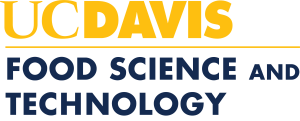A. Specific Learning Outcomes. The successful student will be able to:
- describe the importance of microbiology to food production and food safety.
- analyze food samples for microbial growth, microbial activity and microbial identification.
- apply laboratory techniques learned in this course to complete standardized and non- standardized procedures of food microbiology for the assessment of meat, dairy, produce and liquid effluent quality.
- analyze data generated from food microbiology experiments.
- explain, interpret, and discuss the importance of microorganisms in food science and food safety.
- describe the importance of food fermentations and food-born organisms in maintaining the quality and wholesomeness of the food supply.
- list and describe the characteristics of microorganisms that cause foodborne diseases.
- employ microbial selective and differential media to identify indicator organisms including coliforms, spore-forming bacteria, yeast and molds.
- identify specific food-born pathogens including Salmonella enterica, Listeria monocytogenes, pathogenic E. coli and Bacillus cereus in a microbiological laboratory.
- identify and describe the characteristics of spoilage organisms including Alcaligenes species, Pseudomonas species, various yeasts and various molds.
B. Brief summary of assessment results to date.
Learning outcomes are assessed by 2 problem solving exams, 5 problem solving quizzes and 15 laboratory reports. Each exam covers approximately 1/2 of the course material presented in lectures, discussions, assignments and laboratory experiments. Each quiz covers approximately 1/5 of the course material and focuses on problem solving related to laboratory and experimental design. Working individually, students compose laboratory reports consisting of data management, outcome interpretation and problem solving. Students are also required to justify in lab reports any unexpected experimental results. Learning outcomes are also assessed by active student participation in laboratory experiments. Students have the opportunity for self-assessment during the term by working on sample exam questions and by problem solving the unpredictable nature of food microbiology experiments.
